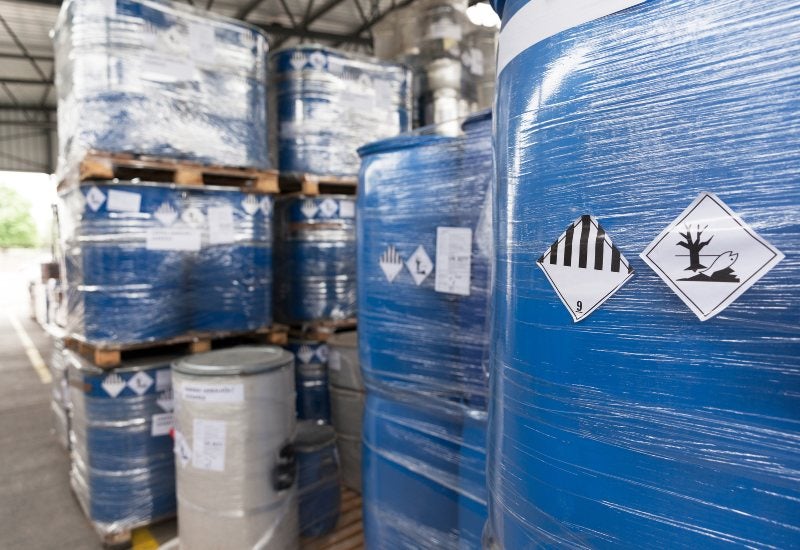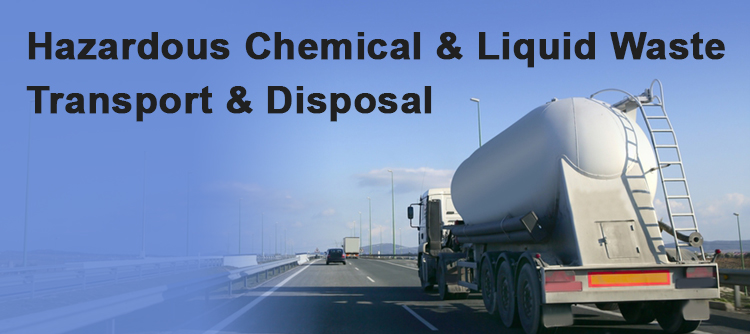Industrial Wastewater Treatment: Advanced Approaches for Effective Monitoring
Industrial Wastewater Treatment: Advanced Approaches for Effective Monitoring
Blog Article
Recognizing the Comprehensive Process of Liquid Garbage Disposal: Ideal Practices and Environmental Influence Considerations
The monitoring of liquid waste disposal is a complex concern that requires an extensive understanding of numerous finest practices and their linked ecological effects. From the types of liquid waste produced to the approaches employed for collection, therapy, and last disposal, each action plays an essential role in safeguarding ecosystems and public health and wellness.
Sorts Of Liquid Waste
Understanding the numerous sorts of fluid waste is important for effective management and disposal practices. Fluid waste can be extensively categorized right into numerous types, each needing one-of-a-kind handling and therapy methods.
Industrial fluid waste often has hazardous materials, consisting of hefty metals, solvents, and chemicals, generated during making procedures. These wastes necessitate rigorous governing compliance to secure human health and wellness and the atmosphere. Domestic liquid waste largely describes wastewater generated from families, consisting of sewage and greywater, which, although less harmful, can still present considerable risks if incorrectly handled.
Agricultural fluid waste, consisting of drainage from farms, often consists of plant foods and pesticides that can cause environmental destruction otherwise treated effectively. Clinical fluid waste, generated from health care centers, consists of polluted liquids such as bodily fluids and chemicals, requiring specialized disposal approaches to stop infection and ecological contamination.
Finally, oil and grease waste, typically created by restaurants and vehicle sectors, can cause severe clogs in sewage system systems if not taken care of correctly. Comprehending these groups assists in targeted strategies for therapy, compliance with laws, and reliable disposal techniques, ultimately advertising ecological sustainability and public health and wellness safety.

Collection Techniques
Efficient collection methods are important for the correct monitoring of fluid waste, making certain that it is collected safely and efficiently prior to treatment or disposal. Numerous strategies are employed depending on the kind of fluid waste produced, the quantity, and the particular attributes of the waste.
One typical method is the use of devoted collection containers or sumps, which are designed to record fluid waste at the resource. These systems often include pumps that assist in the transfer of waste to larger storage containers or treatment facilities. In addition, mobile collection devices geared up with vacuum innovation are employed in situations where waste is created intermittently or in hard-to-reach locations.
For industrial settings, closed-loop systems can efficiently reduce leakages and spills, permitting the healing and reuse of liquid waste. It is likewise vital to train employees on proper collection protocols to alleviate risks related to dangerous compounds.
Moreover, executing routine maintenance schedules for collection equipment makes certain optimal performance and safety. The assimilation of innovative surveillance systems can enhance collection effectiveness by providing real-time information on waste levels and possible dangers. In general, effective collection techniques are foundational to sustainable liquid waste management methods.
Treatment Procedures
Treatment processes play an important function in the monitoring of liquid waste, transforming potentially unsafe materials right into reusable sources or risk-free effluents - liquid waste disposal. These processes can be broadly categorized into physical, chemical, and organic approaches, each customized to address particular contaminants present in the waste stream
Physical therapy approaches, such as sedimentation and filtering, job by removing put on hold solids and particle issue. These methods are typically the primary step in the therapy chain, efficiently minimizing the load on subsequent procedures. Chemical treatments include the use of reagents to counteract hazardous materials, speed up heavy steels, or oxidize organic toxins, therefore enhancing the safety and security of the effluent.
Biological therapy procedures, including triggered sludge systems and anaerobic food digestion, exploit on the all-natural capacities of microbes to weaken raw material. These techniques are especially efficient for wastewater having naturally degradable toxins. Advanced treatment modern technologies, such as membrane purification and progressed oxidation procedures, are significantly utilized to accomplish higher levels of filtration.
Including a combination of these treatment methods not only guarantees compliance with regulative standards however likewise promotes ecological sustainability by recovering useful resources from liquid waste.
Disposal Options
How can companies make certain the responsible and secure disposal of liquid waste? Efficient disposal options are essential for protecting public health and the atmosphere. The main techniques include land therapy, disposal, and incineration followed by discharge right into metropolitan wastewater systems.
Land disposal includes the careful control of liquid waste in marked garbage dumps, making certain that it does not seep right into surrounding soil or water. Incineration, on the other hand, topics liquid waste to heats, converting it right into ash and gases, which require proper filtering to minimize exhausts. This method is appropriate for contaminateds materials that can not be treated with typical methods.
In instances where fluid waste can be treated, organizations might select organic or chemical treatment procedures to counteract hazardous elements prior to discharging the treated effluent right into local systems. This course commonly aligns with regulatory demands, making certain that the effluent fulfills safety criteria.
Inevitably, organizations have to carry out thorough analyses of each disposal alternative to identify its feasibility, thinking about elements such as waste composition, governing compliance, and potential risks to wellness and the atmosphere. By selecting ideal disposal techniques, businesses can add to a liable waste administration strategy.
Environmental Influence
The environmental influence of liquid my explanation garbage disposal is an essential consideration for organizations looking for to reduce their ecological footprint. Improper disposal approaches can cause significant contamination of water resources, soil deterioration, and unfavorable results on local environments. For instance, harmful fluids can leach right into groundwater, posturing threats to alcohol consumption water materials and aquatic life. Additionally, the discharge of untreated or inadequately dealt with waste right into surface waters can cause eutrophication, resulting in oxygen deficiency and the subsequent fatality of fish and various other microorganisms.

To mitigate these view publisher site effects, organizations should adopt best practices such as applying strenuous waste therapy procedures, advertising recycling and reuse, and adhering to regulatory standards. By taking a positive technique to liquid waste administration, entities can significantly reduce their environmental footprint while supporting lasting development objectives. Ultimately, a detailed understanding of the ecological impacts connected with liquid waste disposal is crucial for informed decision-making and accountable stewardship of all-natural sources.
Verdict
Effective monitoring of liquid waste is crucial for guarding environmental honesty and public health and wellness. Ultimately, an extensive understanding of fluid waste disposal not just mitigates ecological influences but also promotes a dedication to accountable resource administration and environmental stewardship.
The administration of liquid waste disposal is a multifaceted issue that calls for a thorough understanding of numerous ideal methods and their associated environmental influences. From the kinds of liquid waste generated to the approaches utilized for collection, treatment, and last disposal, each step plays a crucial role in guarding ecological communities and public health.The ecological effect of fluid waste disposal is an essential consideration for organizations seeking to minimize their eco-friendly impact. Inevitably, an extensive understanding of the environmental influences associated with fluid waste disposal is crucial for educated decision-making and accountable stewardship of all-natural resources.
Ultimately, an extensive understanding of liquid waste disposal not only mitigates environmental effects but additionally fosters a commitment to accountable source administration and environmental stewardship.
Report this page